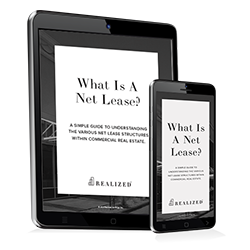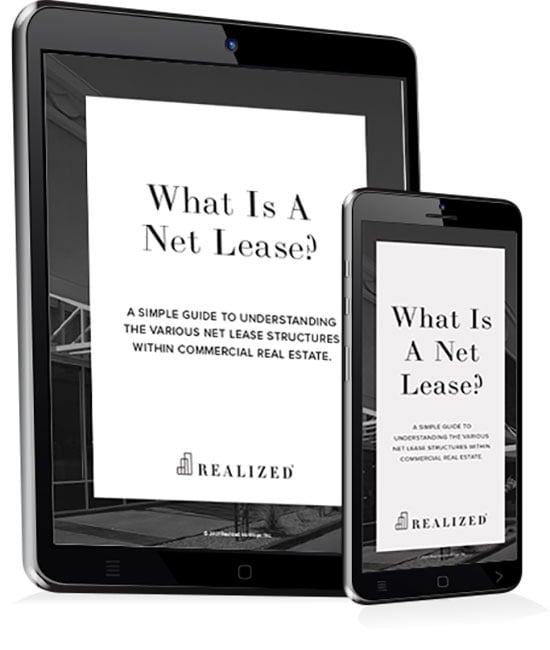
Investors now recognize the many benefits of triple net (NNN) lease investments, such as passive income and long-term stability. However, just like any other investment, there are risks to consider with an NNN lease. One that has a significant impact is vacancy risk, which disrupts cash flow and lowers the investment's value.
In this guide, Realized 1031 shares insights on mitigating vacancy risk in triple net lease properties. When you’re done reading, you’ll be able to employ strategies that ensure a good tenant-landlord relationship and a stable lease.
What Is NNN Vacancy Risk?
Vacancy risk is the possibility that a property may be left unoccupied because the tenant has left or defaulted. The lack of an occupant means there’s no rental income, resulting in disrupted cash flow. Having a vacancy can wreak havoc on financial projections and eat away at reserves due to negative cash flow. As such, investors and landlords must employ strategies that lower vacancy risk. Here are some steps you can take.
Evaluating Tenant Quality
The first and most effective way to reduce vacancy risk is to choose a tenant with a high credit rating and excellent financial health. Given that the NNN lease assigns three net operating expenses to the tenant, the tenant needs the resources to cover them. There are a few ways you can assess clients, such as the following:
- Credit rating from trusted companies like S&P or Moody’s.
- Business performance records, including revenue trends and local market share
- Parent company reputation and brand recognition
- Resilience against economic volatility, as some industries are more stable compared to others.
Diversify Across Different Asset Classes
While you won’t avoid vacancy risk through this strategy, you have an additional cushion if it does happen. Having properties across other asset classes, industries, or geographic locations ensures that even if one property underperforms or has negative cash flow, the impact won’t be as severe.
Not all investors have the capital to invest across multiple asset classes, especially NNN properties, which often carry high upfront costs. If you want to focus more on diversification, there are other methods that allow you to still earn income from an NNN property, such as Delaware Statutory Trusts (DSTs) and real estate investment trusts (REITs).
Maintain Property Appeal
While the tenant handles the costs of maintenance, landlords must still take steps to ensure that the building remains in good condition. Having a well-maintained property gives assurance that tenant operations won’t get disrupted. And even if the tenant leaves, the asset’s good condition is more likely to attract a new occupant quickly. Since the tenant handles maintenance works, here are the aspects you can cover.
- Keeping the property compliant with zoning and safety codes.
- Monitoring developments in the surrounding area that could affect desirability.
- Investing in strategic upgrades, such as improved signage or accessibility, to enhance tenant retention and marketability.
Lease Structuring and Renewal Planning
Having strong lease terms can help protect against vacancy risk. Mainly, investors should implement longer initial lease terms, which can be 10 to 20 years. To discourage early exits, the lease should include clear clauses penalizing premature or abrupt departures. Finally, landlords should start renewal discussions well before a lease ends. Maintaining clear communication at this stage helps the landlords negotiate or adjust terms that encourage continued occupancy.
Wrapping Up: Managing Triple Net Lease Vacancy Risk
One of the biggest threats to NNN investments is vacancies, but this risk can be managed with the right strategies. Whether it’s choosing tenants with high credit ratings, maintaining the property’s appeal, or diversifying across varied asset classes, these proactive steps reduce the risk of vacancies or their impact if they do occur. Implementing these mitigation strategies helps safeguard your income and positions you for lasting success in NNN investing.
Sources:
https://www.indeed.com/hire/c/info/triple-net-lease-guide
https://www.law.cornell.edu/wex/triple_net_lease
https://www.withvincent.com/research/risks-investing-residential-real-estate



